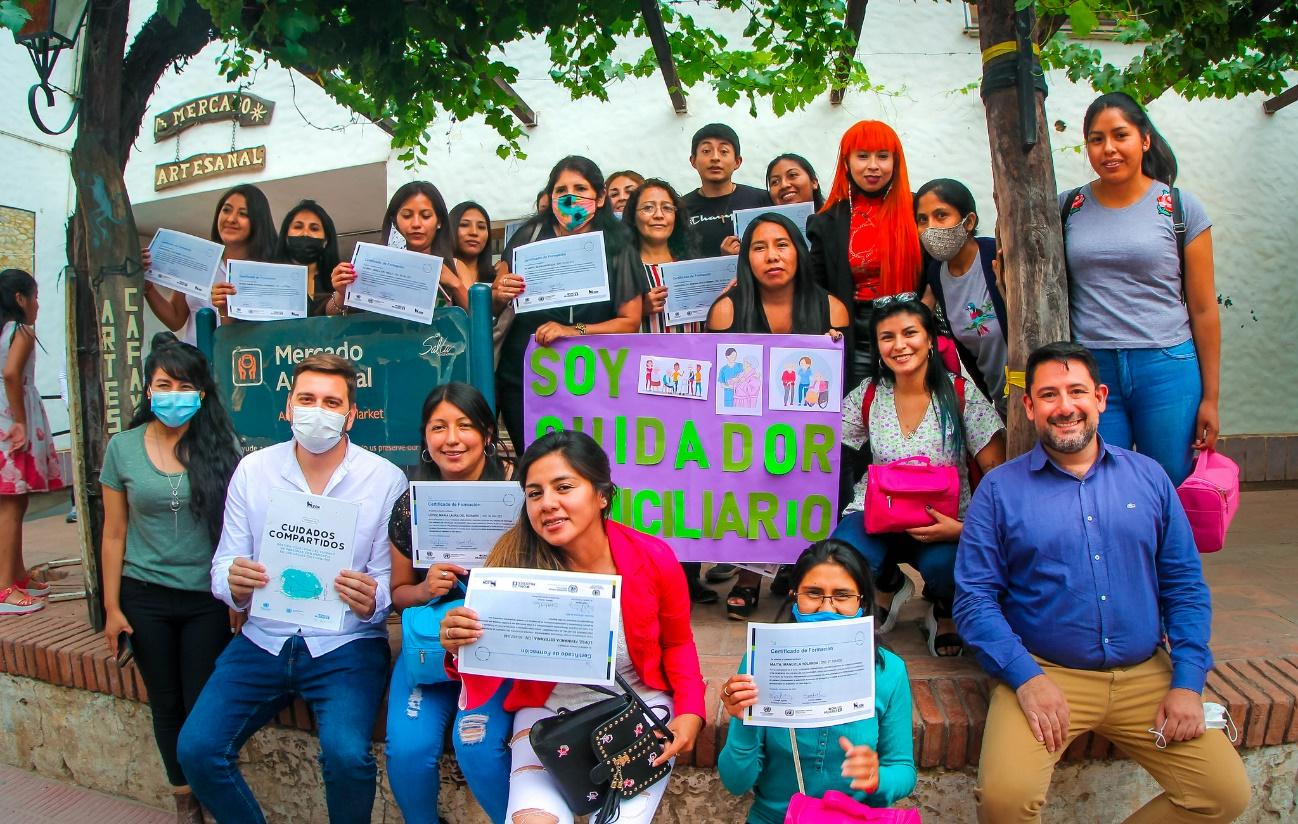Domestic and care work is a feminized sector with high informality and low salaries.
Date:

Statistics show that women have higher unemployment rates and work in more precarious, low-income sectors and lower-ranking positions. In Argentina, on average, women earn 29% less than men. This gap widens to 35.6% in the case of informal salaried women, according to the Permanent Household Survey (INDEC, 3rd quarter 2019).
Inequalities between men, women, and diversities have historical roots of a structural nature, linked to the sexual division of labor; and of a social and institutional nature, related to the norms, biases, and stereotypes that define what is considered proper, appropriate or expected in terms of people's behavior according to the sex assigned at birth.
Domestic work: almost 8 out of 10 women work in the informal sector
In Argentina, there are around 1.4 million domestic workers. According to the National Survey of Workers on Employment, Labor, Health and Safety Conditions (ECETSS), 99.3% of domestic workers are women, and 76.8% work informally.
Although this work is indispensable for developing life and social reproduction, it generally does not get recognition. "When asked if I felt valued as a domestic worker, the answer was no. There is no awareness of the responsibility of being a domestic worker. There is no awareness of the responsibility of our work," warns Monica Monzon, a domestic worker, and childcare worker. " The moment comes when they don't need you anymore; I feel these tasks are not valued," she adds.
Mónica is one of the 20 participants of #ContemosLosCuidados, a campaign promoted by UN Women and UNDP together with the Ministry of Women, Gender and Diversity, PAMI, and ANDIS to make visible the relevance of domestic and care work in the lives of people and the economy of countries and to promote policies aimed at recognizing and redistributing it in a more egalitarian way.

Likewise, in the framework of the Professionals of Care campaign -developed by the ILO office in Argentina, Monica insists that everything she does inside a home (cooking, cleaning, and caring) are care tasks.
"I worked informally for a long time. At one job, I was told that I wouldn't get paid if I did not work on vacation. Since we have Law No. 26,844 on Work in Private Homes that protect us, we have been able to claim that we get paid."
Monica had to take care of her three children when her husband died. "For me, my work is important because with it we eat, we dress and buy clothes and things for school."
In Argentina, according to the National Institute of Statistics and Census (INDEC), women spend twice as much time each day on unpaid care work and perform it in a more significant proportion (91.6% vs. 73.9% for men). This unequal distribution limits the opportunities for professional development, on many occasions, having to reduce their working day to part-time to assume family responsibilities. "I get home, and I still have to do caregiving tasks, I have to cook, wash the dishes, do the laundry... Our work is not recognized economically, and our sacrifice is not valued".
Shared care, towards the professionalization of caregiving
For UN Women, moving towards the formation of comprehensive care systems is necessary to guarantee the rights of people who require care and caregivers and enable women to participate in the economy and the labor market on equal terms.
Within the framework of the programme "Socioeconomic recovery from the COVID-19 crisis from a gender perspective: Promoting women's economic autonomy and care for the elderly and people with disabilities in Argentina" - an inter-agency programme led by UN Women and the United Nations Resident Coordinator's Office in Argentina - Fundación León implemented the project "Shared Care: Collective Management of Care for the Elderly" in the towns of Amaicha del Valle (Tucumán), Cafayate (Salta) and Santa María (Catamarca).

The initiative, which was carried out jointly with UN Women Argentina, strengthened the skills of more than 110 caregivers in the Calchaquíes valleys to train qualified human resources for home, institutional, and community care from a gender perspective with an intercultural approach. In addition, a registry and collective care management groups were created.
"The programme was strongly focused on the economic autonomy of women and the care of the most vulnerable sectors, such as the elderly and the disabled. The programme also focused on strengthening civil society organizations in the territories to create professional teams to provide quality care," says Sabrina Landoni, program specialist at UN Women Argentina.